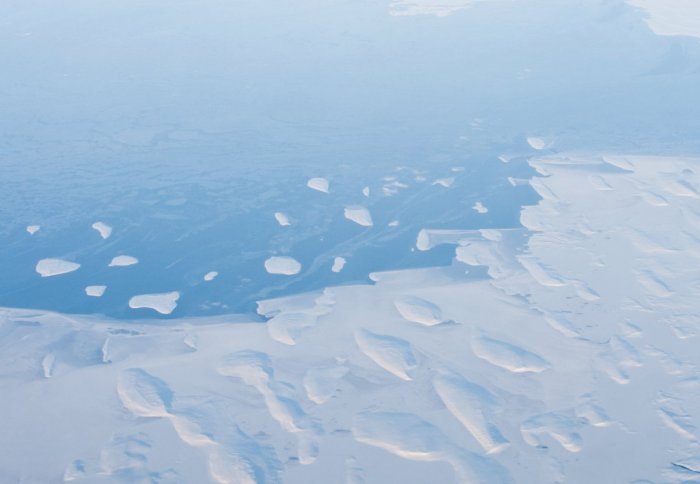Extreme winters led to long-lasting cold patch in the Atlantic Ocean
by Simon Levey

New research has shown that severe weather conditions during the extremely cold winter, 2013 to 2014, affected the North Atlantic for at least a year.
Scientists found that prolonged exposure to the extreme cold left an 'imprint' of low-temperature water on the ocean surface over the North Atlantic, to the west of the UK, which could still be detected in late 2014.
The really cold water has moved down to the deep ocean, but it is still lurking around. In the next few winters, it may well resurface and impact our weather.
– Dr Erik van Sebille
Grantham Lecturer in Oceanography and Climate Change
The research, conducted at the National Oceanography Centre (NOC), the University of Southampton and Imperial College London, was published this month in the journal Climate Dynamics, and is featured in the American Meteorological Society’s recent 2014 State of the Climate report.
The scientists are interested in changes in the ocean surface temperature because they have the potential to influence the temperature of the atmosphere, and global weather systems.
The study was led by Dr Jeremy Grist from the NOC. Co-author, Dr Erik van Sebille from the Grantham Institute at Imperial College London, works with the team at the NOC, focusing on the interactions between oceans and atmosphere.
Their analysis of this prolonged cold period revealed that it was driven by cold, dry airflows originating from North America and the Nordic Seas, which cooled the surface waters as they blew over the North Atlantic.
Dr Grist said: "Extreme ocean surface cooling of this magnitude is very unusual in the datasets we used in this study and has left a major imprint on ocean properties both at the surface and at depth."
The scientists analysed possible pathways of the cold ocean water and predicted that it would reappear from the ocean depths the following autumn. Their cutting edge ocean models proved correct when the cold waters re-emerged at the ocean surface in late 2014.
Dr van Sebille said: "The analysis of similar events in the past shows that the extreme 2013-14 winter, although well behind us now, may keep haunting us for a while.
"The really cold water has moved down to the deep ocean, but it is still lurking around. In the next few winters, it may well resurface and impact our weather."
This study forms part of ongoing research into modelling ocean circulation and the relationship between the ocean and the climate. Future research at the NOC and Imperial College London will investigate the impact that re-emerging cold water may have on the weather.
Reference
Grist, J. P., S. A. Josey, Z. L. Jacobs, R. Marsh, B. Sinha and E. van Sebille, 2015: Extreme air-sea interaction over the North Atlantic subpolar gyre during the winter of 2013-14 and its sub-surface legacy, Climate Dynamics, September 2015.
Article supporters
Article text (excluding photos or graphics) © Imperial College London.
Photos and graphics subject to third party copyright used with permission or © Imperial College London.
Reporter
Simon Levey
Communications Division